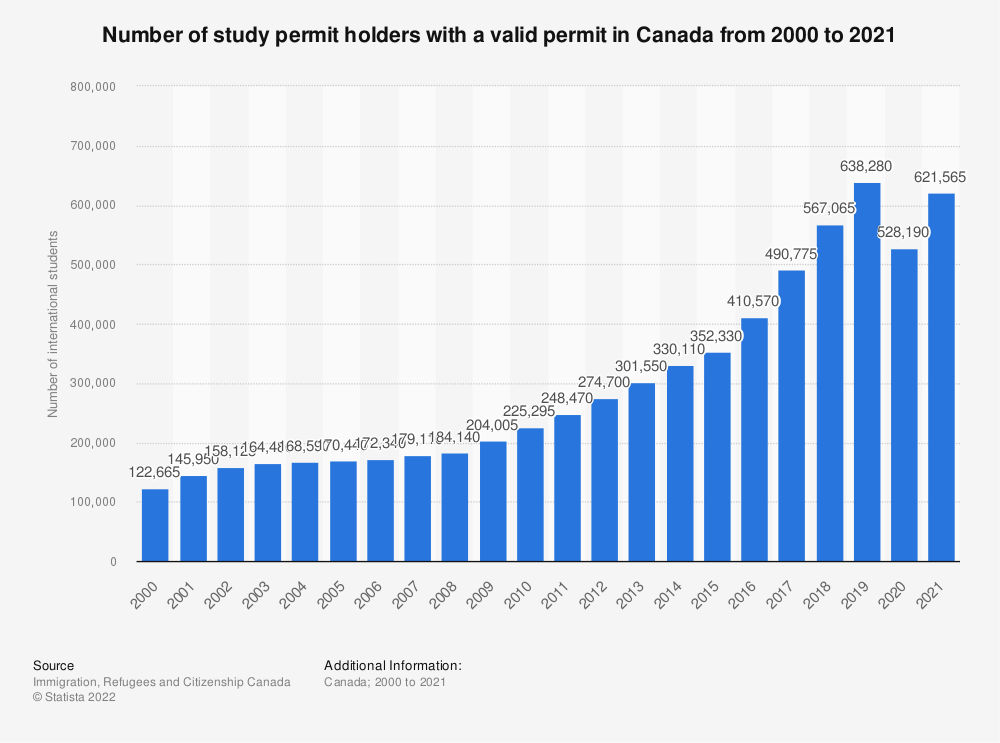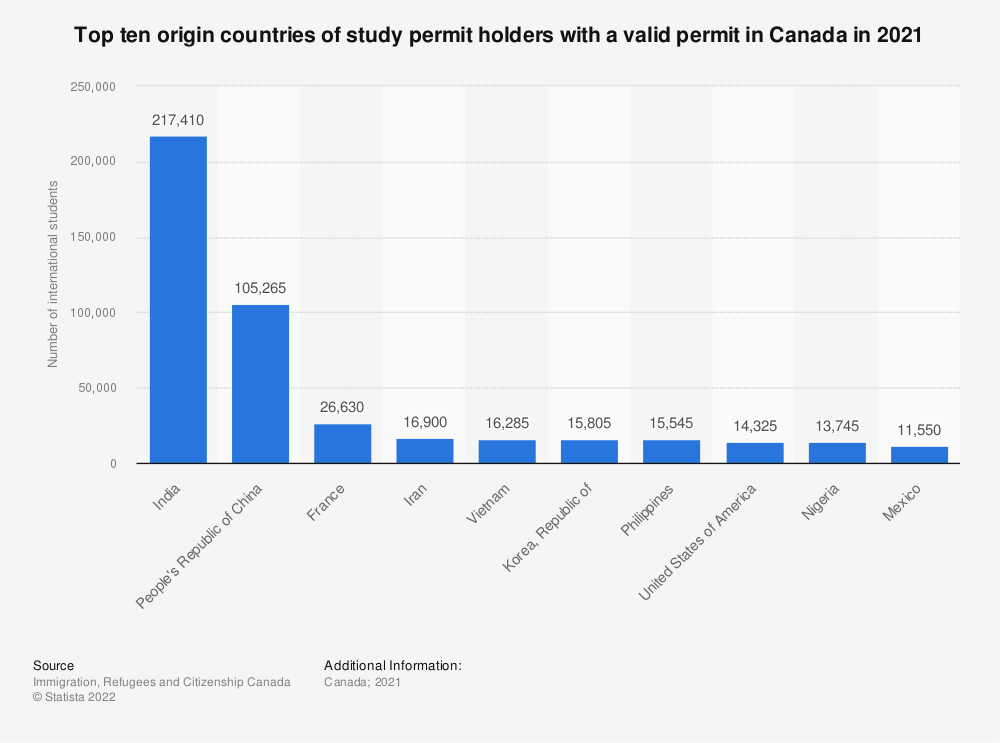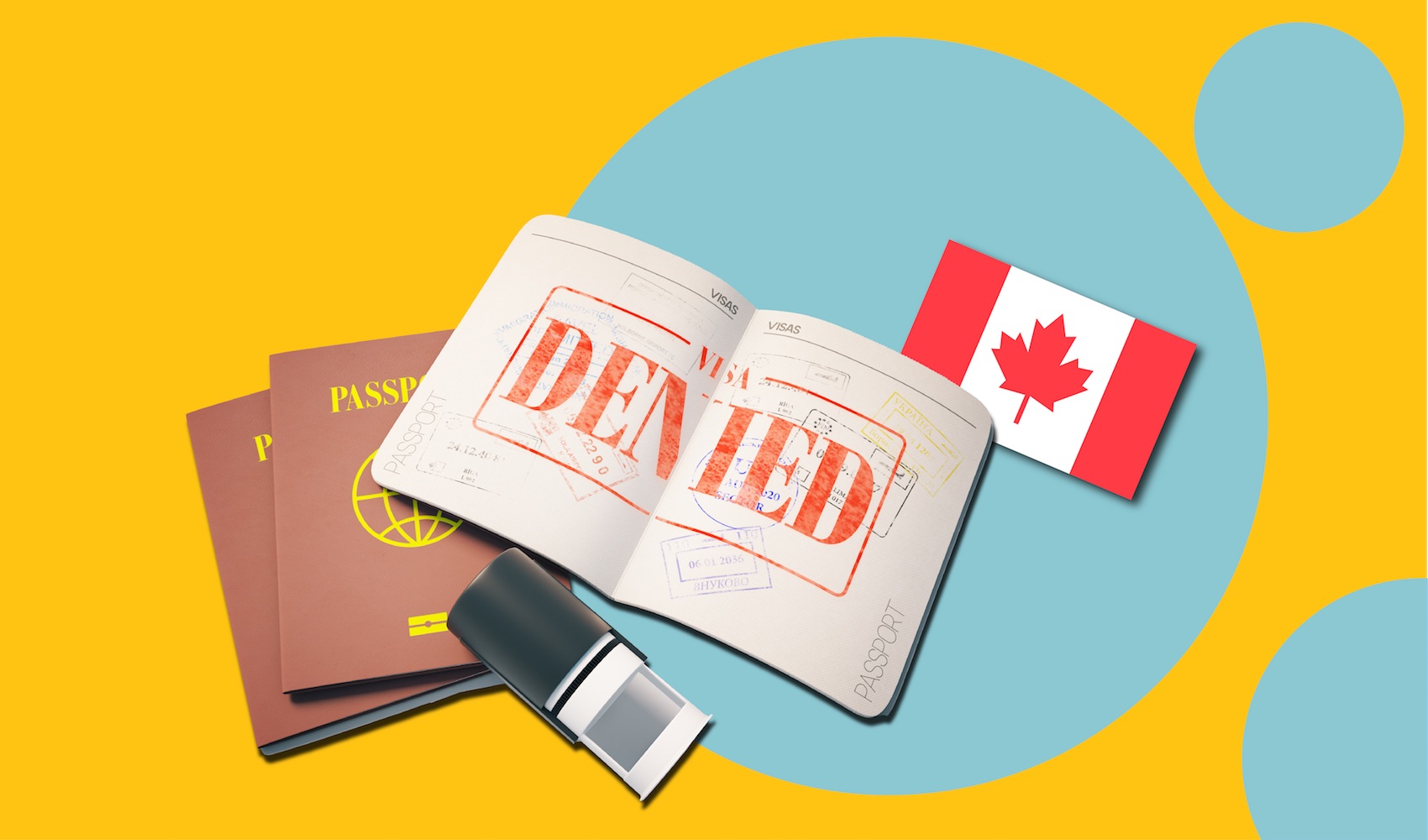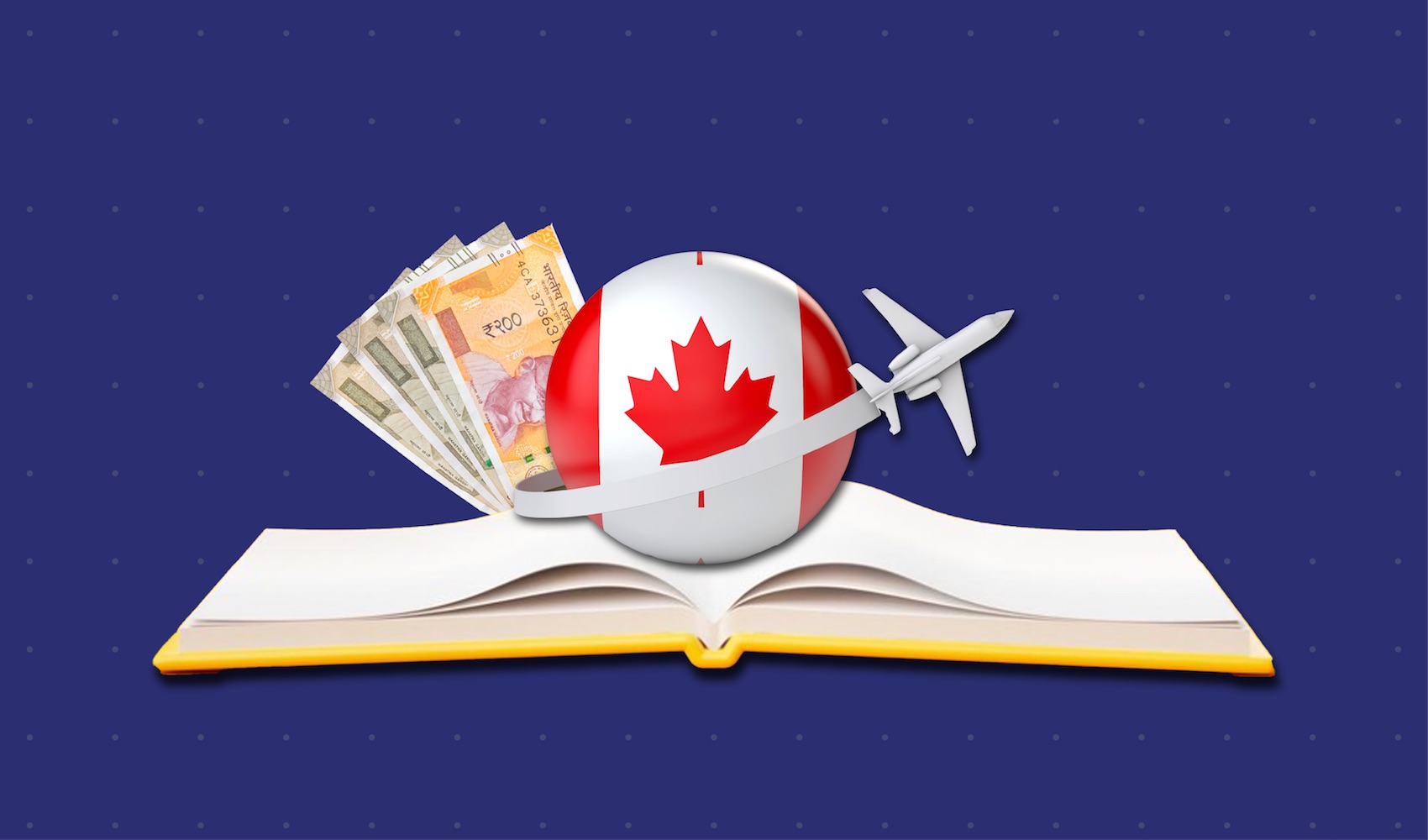Summary
- A Letter of Acceptance (LOA) from a designated learning institution (DLI) is a pre requisite for a Canada student visa.
- Individuals applying for a Canada student visa are required to demonstrate the financial ability to support themselves in Canada.
- The lack of, and issues related to the LOA are one of the most common Canadian student visa rejection reasons.
A Canada student visa opens the door to world-class education and diverse, lucrative career opportunities. Canada also boasts the world’s best quality of life and is ranked among the top 5 education systems across the globe.
Studying in Canada is an opportunity you don’t want to miss. That’s why it’s crucial you identify common Canadian student visa rejection reasons and find a way around them.
Over the next few minutes, you’ll learn about these important details about the Canada student visa:
- The top Canadian student visa rejection reasons
- Canada student visa requirements
- How to get past Canadian student visa rejection reasons and improve your visa approval chances
and plenty more.

Top Canadian student visa rejection reasons
According to IRCC (Immigration, Refugees and Citizenship Canada), India has been the #1 country of origin for international students enrolled in Canada since 2018. Indian students amount to a staggering 30 per cent of all international student visas approved by the IRCC.

Still, thousands of Indian students are refused a Canada student visa every year. Here are the most common Canadian student visa rejection reasons:
Failure to prove financial sufficiency
Individuals applying for a Canada student visa are required to demonstrate the financial ability to support themselves in Canada. The visa officer needs to be convinced that the students have the means to pay for their foreign education and stay. This includes the following costs:
- College tuition fee
- Cost of accommodation
- Day-to-day expenses such as food and travel
Concerns over students’ financial ability is one of the top Canadian student visa rejection reasons.
How to avoid visa rejection due to financial reasons?
Students applying for a Canada student visa can demonstrate their financial status by supplying the following documents:
- A recent 4-month bank statement
- Proof of having a Canadian bank account in their name
- A Guaranteed Investment Certificate (GIC) issued by a recognized financial institution based in Canada
- Documents in support of an approved education loan
- Housing and tuition fee payment receipts
- A bank draft that can be exchanged for Canadian dollars
- Proof of funding received from within Canada
The documents you supply must demonstrate that you have the minimum funds required to support yourself. The IRCC has varying financial requirements for international students based on their age and place of education in Canada.
Your financial documents must prove that you can spend CAN$10,000 (Rs 6,03,796.66) per year on your stay. The minimum funds required per month are CAN$833 (Rs 50,296.26).
In addition to these costs, your financial documents should also demonstrate the ability to pay tuition fees. This amount can vary from CAN$ 8,000-52,000 (Rs 5,00,000-30,00,000).
You can boost your Canada student visa approval chances by ensuring you’ve arranged the required funds before applying.
If you require an education loan, it’s advisable you get the loan approved well ahead of the application date. The best, quickest way to do that is through FundRight—India’s first and fastest education loan bidding platform. FundRight promises personalized, no-collateral loans that get disbursed in just 2 days.
Issues related to the Letter of Acceptance (LOA)
A Letter of Acceptance (LOA) from a designated learning institution (DLI) is a pre requisite for a Canada student visa. This letter serves as proof of a student’s acceptance into a study program or course.
The lack of, and issues related to the LOA are one of the most common Canadian student visa rejection reasons. LOAs containing typos, missing, confusing and incorrect information can severely diminish your chances of visa approval.
How to avoid visa rejection due to Letter of Acceptance related issues?
Make sure you attach a scanned copy of a DLI-issued LOA along with your visa application. Your LOA must contain these details:
- Your full name, date of birth and mailing address
- DLI number
- The DLI’s name and official contact information (including telephone, fax, email and website address)
- Details about the type of institution—private, public, publicly funded non-university, post-secondary college, community college or technical college
- The name of the program, year of study or level that you’ve been accepted into
- The course duration
- The date of course commencement
- The academic year that you’d be starting in
- Whether your study program or course is part-time or full-time
- Scholarships and financial aids you’ve availed
- Tuition fee
- LOA expiry date
Students applying to a Quebec-based DLI have to submit a Quebec Acceptance Certificate (CAQ) to be eligible for a Canada student visa.
Lack of English language proficiency
Non-native English-speaking students are required to provide proof of English proficiency to be eligible for a Canada student visa. A good score in widely accepted English proficiency tests such as IELTS and TOEFL bolsters your visa application.
Failure to achieve the minimum required score in these exams is amongst the top common Canadian student visa rejection reasons. The minimum scores can vary with the country and the educational institution you’re applying to.
How to avoid visa rejection due to language proficiency-related issues?
Check with the educational institutions you’re interested in for their preferred choice of English proficiency test. In addition, make sure you’re aware of the exact minimum scores required.
These tests are divided into different sections—Reading, Listening, and Writing etc. Some universities have specific minimum score requirements for certain individual sections as well as the overall score. Knowing these particulars ahead of starting your test preparations will help you devote due attention to the more important sections.
Issues related to travel or identity documents
Issues with travel or identity-related documents is one of the top, most easily avoidable Canadian student visa rejection reasons. Incorrect or illegible details and blanks in your travel history can mar your visa approval chances.
Note that merely presenting this information in a clear, legible manner isn’t enough. You’re also required to supply sufficient evidence to support your identity and travel history-related details.
How to avoid visa rejection due to travel or identity documents-related issues?
Before you apply for a Canada student visa, comb through your identity and travel-related documents and look for irregularities. If there are any gaps in your travel history, make sure to supply documents that cite justifying reasons for them.
Also, make sure the copies of documents supplied as evidence do not include any typos and misprints.
Inconsistent academic choices
Choosing a course that’s inconsistent with your academic history is one of the most prevalent Canadian student visa rejection reasons. Here are a few common instances where students’ choice of courses often leads to visa rejection:
- Students with a high GPA (Grade Point Average) in their bachelor’s degree opting for a post-graduate diploma
- Students with a master’s degree applying for a post-graduate diploma
- Gaps in students’ academic history
If you’re looking to change your academic path, getting a Canada student visa can be quite challenging.
How to avoid visa rejection due to academic-related inconsistency?
A personal statement explaining your reason for a change in academic direction is the best way to allay the visa officer’s doubts.
Have you taken any courses or training related to your chosen course? If you have, make sure to include the related certificates with your application.
Do you have any past work experience in the field related to your chosen academic course? If you do, include documents such as offer and relieving letters and pay slips with your visa application.
Failure to show the intent of returning to the home country
International students are expected to return to their home country once they’ve completed their chosen course in Canada. Any doubts about a student’s intent to do so can lead to the rejection of his/her visa application.
Choosing a course that has poor job prospects in your home country is among the most commonplace Canadian student visa rejection reasons. The visa officer can consider this an indication of your intent to pursue employment in Canada instead of returning home.
In addition to the aforementioned Canadian student visa rejection reasons, your visa application can also be denied in these cases:
- If you have a past criminal conviction
- If you’re found guilty of misrepresentation by Canadian immigration authorities
- If you have been deported from a country due to illegal stay
- If you’ve been diagnosed with a contagious disease that can be a risk to public health
- If you’ve been suspected of being implicit in any human rights violations in the past
How to avoid visa rejection because of failure to prove the intent of returning home?
A personal statement expressing your intent to return home after you’ve successfully completed your course can go a long way. Students who have recent employment history in the same field can attach related documents along with their application.
Canadian student visa rejection reasons: Frequently Asked Questions
1. Do you need to wait to reapply for a Canada student visa if your initial application gets rejected?
In most cases, students can reapply for a Canada student visa at any time. Check your letter of acceptance for any clauses related to visa rejection and reapplication.
Rectify your application based on your Canadian student visa rejection reasons before reapplying. For instance, if your reason for rejection was incomplete documents, collect and attach all the missing documents with your new application.
2. How many times can you reapply for a Canada student visa after rejection?
There is no maximum limit for reapplying for a Canada student visa. You are, however, required to have a valid letter of acceptance from a DLI while you’re reapplying.
3. Are you eligible for a refund if your Canada student visa application gets rejected?
In most cases, there is no refund on the visa application fee. Students can, however, get a refund on the university’s fee. Most universities charge a small administrative fee and refund the rest of the amount once a student’s visa application is rejected.
Note that the refund amount and process can vary with the university.
Learning about the most common Canadian student visa rejection reasons is a good start. You’re now familiar with all the pitfalls and can start planning a course around these.
Pay close attention to the study visa application requirements, find the right study loan in time and include all supporting documents with your application. These little steps can increase your visa approval chances in a big way and ensure your academic journey continues without any hiccups.


























































































































































